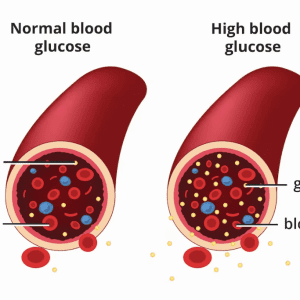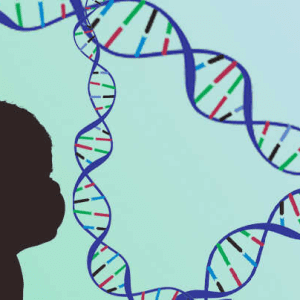Cancer remains one of the deadliest diseases globally, impacting millions of lives every year. However, a groundbreaking development in cancer treatment is offering new hope. The UK’s National Health Service (NHS) has launched the world’s first clinical trial for a personalized cancer vaccine, marking a revolutionary step forward in modern medicine.
This innovative trial aims to empower patients’ immune systems to recognize, attack, and prevent the spread of cancer cells through customized vaccines specifically designed for each individual. The trial is part of the “Cancer Vaccine Launch Pad” initiative, enabling thousands of patients to access these cutting-edge treatments. If successful, this could significantly transform how we approach cancer treatment, potentially reducing mortality rates worldwide.
How Personalized Cancer Vaccines Work

Unlike traditional vaccines that aim to prevent diseases, personalized cancer vaccines are designed to treat patients who already have tumors. The process is highly individualized and involves several critical steps.
Step 1: Genetic Analysis
Doctors conduct a thorough genetic analysis of the patient’s tumor. This helps identify the specific mutations and proteins that make the cancer unique to that individual.
Video:
Thousands of cancer patients to trial personalised vaccines in England
Step 2: Personalized Vaccine Development
Using the genetic data, scientists develop a custom vaccine targeting the unique characteristics of the cancer cells. This ensures that the vaccine effectively trains the immune system to recognize and attack the cancer.
Step 3: Immune System Activation
The vaccine then activates the immune system, teaching it to differentiate between healthy and cancerous cells. This targeted approach helps the body destroy cancer cells while sparing normal tissue, unlike traditional treatments like chemotherapy that affect both.
Why Personalized Vaccines Are Better
- Precision Treatment: Targets cancer cells specifically, reducing damage to healthy cells
- Fewer Side Effects: Minimizes harmful reactions often seen with conventional treatments
- Improved Survival Rates: Boosts the body’s natural defenses, increasing long-term survival chances
The Cancer Vaccine Launch Pad: A Step Toward Faster Treatment

One of the biggest challenges in cancer care is the time it takes to develop and deliver new therapies. The NHS Cancer Vaccine Launch Pad addresses this issue by providing faster access to innovative treatments for thousands of patients.
Accelerating Access to Treatment
By 2030, the UK aims to have treated at least 10,000 patients with personalized cancer vaccines. This initiative could set a global standard for cancer care, prompting other countries to adopt similar strategies.
Why Speed Matters
Timely intervention is crucial for better outcomes. Early and quick treatment helps reduce waiting times and ensures that patients receive cutting-edge care without delay. Implementing such initiatives on a global scale could significantly improve cancer care delivery.
Video:
A Turning Point for Cancer Vaccines
Why This Breakthrough Is So Important
Cancer remains a critical global health challenge. In 2022 alone, more than 20 million new cancer cases were reported worldwide. While modern medicine has made remarkable progress, existing treatments often come with harsh side effects and varying success rates.
Personalized Cancer Vaccines Offer Hope By:
- Boosting Immune Response: Enhancing the body’s ability to naturally fight cancer cells
- Reducing Aggressive Treatments: Decreasing reliance on chemotherapy and radiation
- Lowering Recurrence Rates: Reducing the risk of cancer returning after initial treatment
- Providing Long-Term Protection: Offering a tailored approach that addresses cancer mutations
By moving away from a one-size-fits-all model, personalized cancer vaccines represent a more targeted and effective strategy, giving patients a better chance at recovery.
Addressing Healthcare Access and Equity

Despite the promising potential of personalized cancer vaccines, access to these innovative treatments remains a significant challenge. Countries with advanced healthcare infrastructures, like the UK and the US, are leading the way, but many low-income nations still struggle to provide basic cancer care.
Challenges to Widespread Access
High costs make developing personalized treatments financially demanding. Healthcare disparities and limited infrastructure in low-income countries make implementation difficult. Advanced genetic sequencing is not universally available, creating a technological gap.
Bridging the Gap
To ensure global benefit, collaboration between governments, healthcare organizations, and pharmaceutical companies is essential. Making personalized treatments affordable and accessible will be a vital part of the journey forward.
The Rise of Preventive Cancer Vaccines

While personalized vaccines target existing tumors, research is also progressing on preventive cancer vaccines. These vaccines help protect individuals from developing certain cancers in the first place.
Notable Preventive Cancer Vaccines:
- HPV Vaccine: Prevents cervical and throat cancers caused by human papillomavirus
- Hepatitis B Vaccine: Reduces the risk of liver cancer by preventing hepatitis B infection
- OvarianVax: A new vaccine under development to protect against ovarian cancer
These preventive vaccines have already made significant strides in reducing specific cancer rates. As research continues, more cancers may become preventable through vaccination.
The Future of Cancer Treatment: A Glimpse of Hope

With the development of both personalized and preventive cancer vaccines, we are moving closer to a future where cancer may no longer be a life-threatening condition. These advancements offer hope to millions of patients and could revolutionize oncology in the coming decades.
Key Factors for Future Success:
Ongoing research and clinical trials will confirm vaccine effectiveness. Collaboration between governments, scientists, and pharmaceutical companies will help scale production. Making treatments affordable is essential to ensure accessibility. Building healthcare infrastructure globally will support the implementation of advanced treatments.
By integrating personalized medicine into mainstream cancer care, we can potentially reduce cancer mortality rates and enhance the quality of life for countless patients.
Conclusion: A Game-Changer in Cancer Treatment
The launch of the world’s first personalized cancer vaccine trial is a monumental step forward in the fight against cancer. If successful, this innovative approach could reshape how we treat cancer, leading to better survival rates, fewer side effects, and more efficient therapies.
The UK’s Cancer Vaccine Launch Pad marks the beginning of a new era in oncology. While challenges remain, the future of personalized medicine looks bright, bringing us closer to a world where cancer no longer holds the same fear it once did.
As this groundbreaking trial progresses, the world watches with hope. The potential to revolutionize cancer care is within reach, promising a future where more lives are saved through cutting-edge, personalized treatments.


